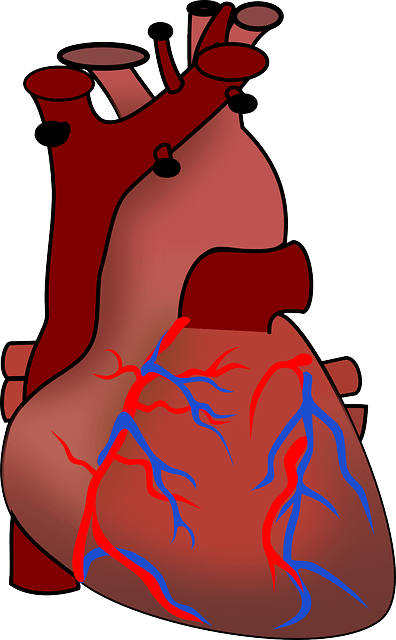
Heart Health: 13 Habits that Can Play a Part
There is no need to tell the importance of the heart in the human body. But unfortunately, the current lifestyle and irresponsible behaviour are deteriorating heart health even in the younger population. In this article, few prophylactic measures are discussed based on evidence that can improve the health of the heart and even improves the symptoms due to previous cardiac problems or stroke.
Walking is Basic for Improving Heart Health
Walking is remarkably essential in improving heart health. Public health workers are recommending their patients to increase the levels of daily walking. Evidence from epidemiological studies shows that daily walking is far better than not walking at all and has a significant role in improving heart health. The short term benefits which walking gives are improved fitness, body composition, blood pressure and lipid profiles. Other benefits include a reduction in the risk of CHD, coronary events and mortality. Start walking a few steps from today and take it to a recommended minimum of 150 minutes per week.
Environmental Pollution can Play a Havoc
It is suggested that environmental pollution is also a more significant cause of congenital heart disease when compared to genetic factors. The influence of pollution on the developing foetus during pregnancy leads to congenital heart disease.
Physical activity
Evidence gathered in the review studies indicates that regular moderate physical activity (approximately 30 min/day) has highly beneficial effects in lowering BP, decreasing blood coagulation, improving fibrinolytic capacity and helping in vascular remodelling. Dietary modifications involving a reduced intake of saturated and trans fats and increased ingestion of fresh fruits and vegetables have also proved useful in limiting the progression of heart and some other chronic disease.
Reduce Obesity

Overweight and obesity are modern age public health challenges that affect millions of people in developed and developing countries. Obesity is a major modifiable risk factor that contributes heavily to the onset of diabetes mellitus, hypertension, heart disease, stroke and some cancers. Healthy dietary habits and lifestyle changes such as physical activity and moderate alcohol consumption have been positively linked with a reduction in obesity.
Limit the Intake of Alcohol
Alcohol also has calories in it. Drinking more than recommended units of alcohol can have a considerable effect on the waistline. Taking the recommended level reduces the risk of health problems, including heart health.
Lower LDL levels in the Body
The lowering of LDL can be a primary factor in reducing cardiovascular health. But a new growing consensus is developing that non-HDL cholesterol can be a predictor in developing cardiovascular disease. Because it contains not only LDL but other “bad” particles that play a role in the build-up of cholesterol-filled plaques in the wall of the artery.
- How Physical Activity is Helpful in Stress Related Brain Activity to Decrease Cardiovascular Disease Risk?
- What Is Cardiac Tamponade?
- Why I Hear Heartbeat (Pulsatile Tinnitus) in My Ear Means?
- Common Conditions Affecting Women’s Reproductive Health
- 5 Signs of Hair Loss You Should Know
Prevent or Control Diabetes
Diabetes is becoming a relatively common health disorder these days due to a sedentary lifestyle and eating unhealthy and toxic food. The risk of occurring stroke is two to four times more in diabetic people when compared to non-diabetic people. Therefore preventing diabetes can prevent you from developing heart disease.
other problems caused by diabetes are blindness, peripheral artery disease, diabetic neuropathy, poor wound healing, erectile dysfunction, kidney failure gangrene, and amputations.
Although there is a ray of hope because diabetes is a lifestyle-related disease, a positive lifestyle change can bring a big difference. Diet exercise and healthy eating can do much to control the onset and maintenance of this life-robbing disease. Maintaining a healthy blood sugar level and shedding extra weight is the key to prevent deterioration of heart health from this disease.
Keep a Lid On Stress

The stress affects not only the mental but also the physical health of the person. When life’s difficulties get the best of us, they contribute to health conditions from high blood pressure, heart disorders and irritable bowel syndrome. The lousy effect of stress on our hearts is real. The feeling of pressure and anxiety causes impulsive behaviours that increase heart disease risk, such as smoking, skipping exercise, and drinking alcohol frequently.
Know What You are Eating
How much a person eats is equally as important as what he eats. Eating at irregular times, over-stuffed plates, large fat portion, and continuously eating unless you are full. All these behaviours results in eating more calories than you should eat. The best way to avoid it is by understanding your portions of food and duration of your eating. Making low-calorie, nutrient-rich foods, such as fruits and vegetables a part of your diet can improve your heart health and even your waistline.
Include more Vegetables and Fruits in the Diet
Vegetables and fruits are a good source of vitamins and minerals. These are low in calories as well as rich in dietary fibre. Vegetables and fruits contain substances that can prevent cardiovascular disease. Eating more fruits and vegetables is also a better option to cut back on higher-calorie foods like meat, cheese and snack foods.
Vegetables can be taken in raw form, stir-fry or as salads. Another option is to look for recipes with vegetables and fruits as their primary ingredient.
Reduce the Sodium in Your Diet
Eating a lot of sodium increases the risk of high blood pressure, and increased risk contributing to cardiovascular disease. Cutting down sodium is vital for a heart-healthy diet. The American Heart Association recommends that healthy adults have no more than a teaspoon of salt-containing sodium.
Although cutting the amount of salt sprinkled directly in the food while cooking or eating is the first step. Most of the salt comes from canned, processed or frozen dinners you ingest.
If you find canned soups and processed meals more convenient, look for the ones with low sodium. Be aware of foods that claim to be lower in sodium because they are seasoned with sea salt, which has the same contents as regular salt. A simple way to reduce the amount of sodium is choosing available in reduced-sodium versions. The salt substitutes can add flavour to your food with less sodium.
- Low-salt items to choose high-salt things to limit or avoid
- Table salt
- Canned soups and prepared foods
- Herbs and spices
- Salt-free seasoning blends
- Reduced-salt canned soups or prepared meals
- Tomato juice
- Reduced-salt condiments, such as reduced-salt soy sauce and reduced-salt ketchup
- Restaurant meals
Eat Fish for a Healthy Heart
Eating fish twice a week at a minimum, including a portion of oily fish may help protect against heart disease. Fish such as salmon are a rich source of omega-3 fats. However, pregnant women should not have more than two portions of oily fish per week.
Give up smoking
Quit smoking. It’s the best contribution to your heart’s health. Smoking is one of the prime causes of coronary heart disease. After one year of giving up, the risk of a heart attack reduces to half when compared to a smoker. Finally, countless studies have documented that smoking contributes heavily to the development of heart and respiratory diseases.
It has consistently been shown that smoking increases the risk of atherosclerosis and interferes with the normal functioning of the cardiopulmonary system (blood pumping system of the heart). Because tobacco smoking is an avoidable risk factor for respiratory and heart health, the interventions to stop smoking should be highly encouraged in all age groups, especially in younger populations.
Given the scope and prevalence of heart diseases, Your health approach should be – ‘prevention is better than cure’. It seems to be the most appropriate model to adopt to improve the health of the heart as well as generalised health. The health condition of the heart is directly related to related mortality and morbidity. Prophylactic measures must be taken collectively because an ample amount of scientific research supports the fact that lifestyle modifications, including nutritional interventions, increased physical activity, decreased incidence of obesity and smoking cessation, would provide an integrative approach in improving the heart health and reducing the risk of stroke.





